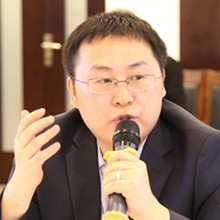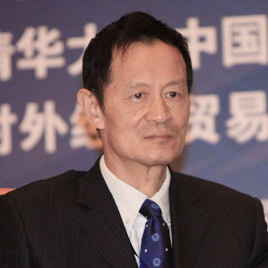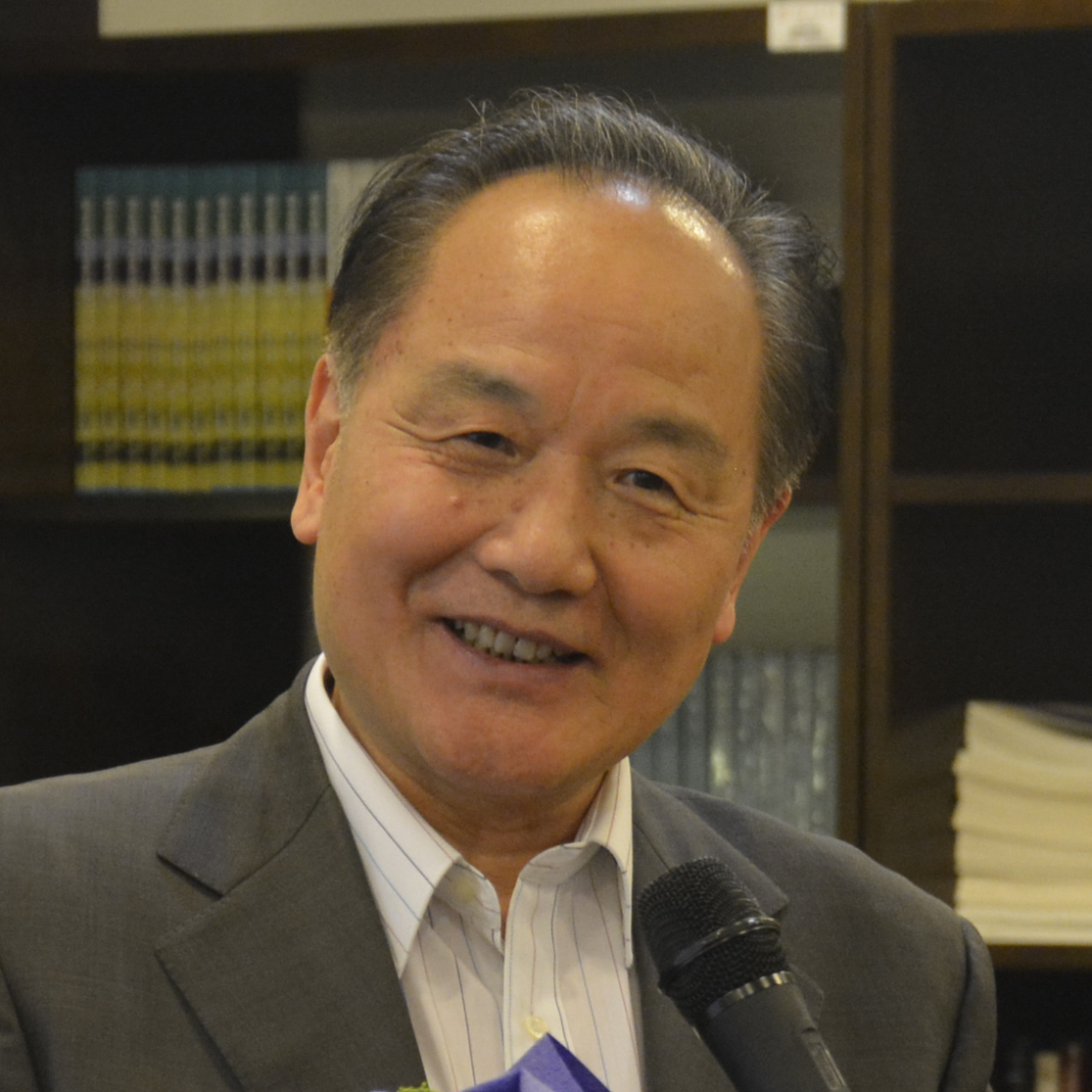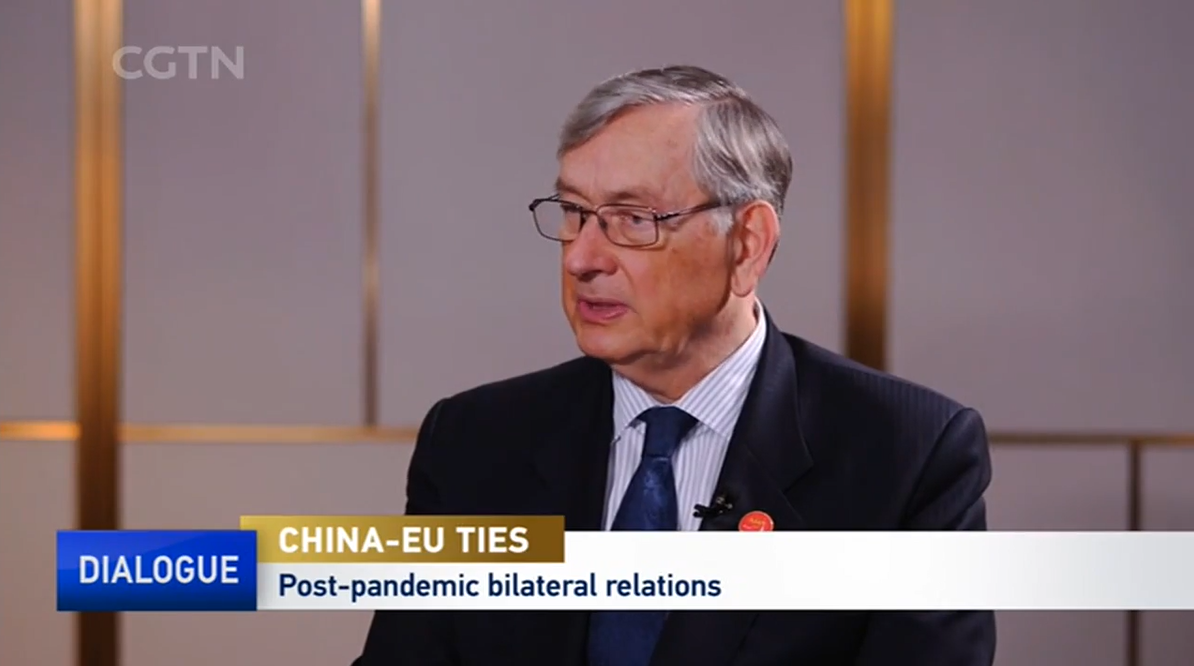Commentaries
Your Present Location: Teacher_Home> He Weiwen> CommentariesHe Weiwen: Will Sanctions on HK Work?
By He Weiwen Source: China-US Focus Published: 2020-07-13
Both the United States House of Representatives and Senate were unusually efficient in passing the Hong Kong Autonomy Act on July 2, just 48 hours after a bill was adopted by Chinese lawmakers to bring order to Hong Kong with respect to national security.
The Chinese law, whose passage was followed immediately by an announcement of sanctions by the U.S. Anxious expressions of concern over the so-called loss of autonomy in Hong Kong were made by the United Kingdom and some other governments and politicians in the West.
The bill that moved so rapidly through Congress — known as the HKAA — punishes central government officials on the Chinese mainland and others in the Hong Kong Special Administrative Region who materially contribute to the enforcement of the new National Security Law.
In fact, the Trump administration began sanctioning Hong Kong and the central government even before Congress started reviewing the HKAA. Mike Pompeo, the U.S. secretary of state, testified to Congress in May that Hong Kong had insufficient autonomy already.
U.S. President Donald Trump announced on the following day: “I am directing my administration to begin the process of eliminating policy exemptions that give Hong Kong different and special treatment.” The Commerce Department announced on June 29 the revocation of Hong Kong’s special tariff treatment, including licensing suspension for high-tech exports to Hong Kong, and began reviewing other tariffs. Pompeo also announced an export ban to Hong Kong of defense equipment for dual-purposes.
Fundamental distortion
The vehement allegations by the U.S. against China, the bills and the sanctions are all based on the concept of Hong Kong autonomy, which is a fundamental distortion. The full, and correct, description of Hong Kong is “one country, two systems, and a high degree of autonomy.”
The first part — “one country” — is an essential prerequisite. Hong Kong is Chinese territory, not an independent territory, and the Chinese central government has sovereign power over it. There is no autonomy in Hong Kong that can be allowed to challenge China’s sovereignty.
The second part is “two systems, with high degree autonomy,” meaning that Hong Kong retains its own social system, capitalist economic system and social management system. The SAR government continues to be elected by Hong Kong residents and the SAR keeps its independent judicial system with respect to local affairs.
The new Law of Safeguarding National Security in Hong Kong addresses issues relating to “one country.” It specifies four criminal categories: secession of Hong Kong from China, subversion of the Chinese central government, terrorist activities and collusion with a foreign country or external elements that endanger national security. None of these has anything to do with “two systems.” The matter is entirely internal to China, and no foreign interference can be tolerated.
But the U.S. Congress and administration willfully neglect “one country.” Their definition of autonomy means Hong Kong independence, as if Hong Kong were an independent territory, not a part of China.
Sanctions will boomerang
Different estimates see the likely U.S. sanction measures as follows:
A) Revoke Hong Kong’s status as a separate tariff area, and thus call off preferential tariffs on imports from (currently at 3.5 percent) and apply tariffs identical to imports from mainland China.
B) Suspend U.S.-Hong Kong bilateral trade agreements and negotiations on new agreements.
C) Revoke the acceptance of product origin certificates issued by the Hong Kong SAR government.
D) Delink the Hong Kong dollar from the U.S. dollar.
E) Impose severe restrictions on Hong Kong companies listing and trading in the U.S. stock market, and restrict U.S. companies’s activity in Hong Kong bourses.
F) Discourage or even restrict U.S. business investment in Hong Kong.
G) Expand the entity list to include Hong Kong companies.
There have been sensational estimates that, as a result of the U.S. sanctions, Hong Kong will lose its status as a world-leading financial center. However, those sanctions, if implemented, will most likely boomerang and hit American business hardest.
The separate tariff area status of Hong Kong was not awarded by America. Hong Kong has been a separate tariff area for decades. It was a founding member of the World Trade Organization in 1995. The Chinese mainland was not a member. When China joined the WTO in 2001, Hong Kong legally continued as a separate tariff area.
The U.S. can only change its tariff policy toward Hong Kong. It cannot rightfully change its legal status in the WTO. By doing so, the U.S. will probably change its current Most Favored Nation tariff rates on Hong Kong products, which average 3.5 percent, to a level equivalent to those on imports from the Chinese mainland. This will hinder Hong Kong exports to the U.S.
In that event, Hong Kong will be empowered to impose tariff countermeasures on imports from the U.S. In 2019, Hong Kong goods export to the U.S. amounted to $4.73 billion (USD), while its imports from the U.S. reached $30.78 billion, leaving a trade surplus of $26 billion for the U.S. American exporters will suffer much more. And Hong Kong can easily find alternate markets in the Chinese mainland for that amount of goods.
U.S. tariff changes on Hong Kong products will not affect transit trade via Hong Kong — which is mostly for exports from the Chinese mainland — with the U.S. as the ultimate destination. The current rule-of-origin arrangement between the U.S. and Hong Kong excludes transit trade goods. U.S. tariffs on goods from the Chinese mainland also apply to those shipped via Hong Kong.
In recent years, the U.S. has tightened controls on technology exports to Hong Kong. The new restrictions will not make a big change. While losing some high-tech supplies from the U.S., Hong Kong will be able to find alternate sources in Europe and Japan.
Sanctioning Hong Kong capital markets trading is unrealistic. Hong Kong stocks, futures and exchange markets are all private and extremely international. Hong Kong, London and New York are precisely located for time sequencing. Hong Kong is ahead of London by eight hours. When trading in Hong Kong closes at 3 p.m., it is 7 a.m. in London, preparing for the capital market opening at 9 a.m. Market changes and sentiment in Hong Kong thus serve as a good reference for trading in London. In turn, London is five hours ahead of New York. When trading in London closes at 3 p.m., it is 10 a.m. in New York, thus market changes and sentiments in London serve as a good reference for trading in New York. When trading in New York closes at 3 p.m., it is 4 a.m. the next day in Hong Kong, serving as a good indicator for next day trading there.
One-third of the floor traders in the Hong Kong stock market are American brokers. What’s more, many companies listed in the Hong Kong stock market are also listed in both New York and London stock markets. Thus, American business cannot afford to suffer any sanctions on Hong Kong capital markets.
The Hong Kong dollar’s exchange rate linkage to the U.S. dollar is based on market mechanisms and is neither helped nor hurt directly by the U.S. government. Hong Kong is the world’s fourth-largest exchange after London, New York and Singapore, with a daily trading value $632 billion (USD) in 2018, according to the Bank of International Settlements. The only risk is possible short selling of Hong Kong dollars in malicious international speculation. Due to the extremely powerful backup by the HKSAR and the People’s Bank of China, and in light of the humiliating defeat of George Soros in 2018, when he tried to force a sharp depreciation of the HKD, a similar scenario looks unlikely.
The U.S. has tremendous business interests in Hong Kong. According to the United Nations body dealing with trade, investment and development, known as UNCTAD, , foreign direct investment stock in Hong Kong was just under $2 trillion at the end of 2018. Of all the foreign companies in Hong Kong, 19.3 percent are American, exceeding the number from Japan (17.6 percent) and the Chinese mainland (9.3 percent).
There are 85,000 Americans living in Hong Kong. According to the U.S. Commerce Department, majority-owned affiliates of American multinationals in Hong Kong had total assets of $414.88 billion at the end of 2017, with sales revenues of $140.32 billion and net income of $18.27 billion that year.
Nobody can doubt that American businesses will be a leading victim of U.S. sanctions on Hong Kong.
It is unknown what sanctions the U.S. will impose, but it is already clear that they are unlikely to work.
The author is a senior fellow at the Chongyang Institute for Financial Studies, Renmin University.

















































































 京公网安备 11010802037854号
京公网安备 11010802037854号





